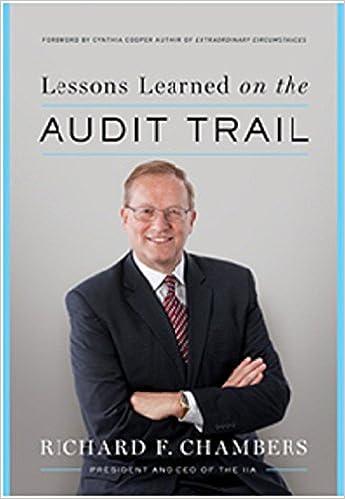Question
Case Study 2 Vent Forte SA (VFS) is a French wind-power generating company, with windfarmsthroughout France. The Board of Directors is considering investing in a
Case Study 2
Vent Forte SA (VFS) is a French wind-power generating company, with windfarmsthroughout France. The Board of Directors is considering investing in a new windfarm using latest technology turbines. These turbines are expected to increase the effectiveness of the windfarms electricity generation and enable increased capacity to supply electricity to the government grid.
Construction of the new windfarm would cost 2,000 million and will complete by 30 June 2023 and be able to start electricity generation immediately thereafter. The whole construction cost will attract tax depreciation allowances on a straight line basis over the life of the project.
Due to the rapidly changing technology in the windfarm sector, the Board of Directors only plans for either three or four years maximumfrom the day a windfarm is opened.
The exact amount of electricity generated is unknown, and a range of possible revenues has been identified together with associated probabilities has been compiled for the four years to 30 June:
| Probability | Jun-24 | Jun-25 | Jun-26 | Jun-27 |
| million | million | million | million | |
| 30% | 900.00 | 1,250.00 | 1,500.00 | 1,200.00 |
| 50% | 1,100.00 | 1,500.00 | 1,850.00 | 1,550.00 |
| 20% | 1,200.00 | 2,000.00 | 2,000.00 | 1,700.00 |
Variable operating costs of the new windfarmfor the four years to 30 June:
| Jun-24 | Jun-25 | Jun-26 | Jun-27 |
| million | million | million | million |
| 675.00 | 895.00 | 1,010.00 | 990.00 |
The new windfarm will enable VFS to reduce electricity production in some of its olderwindfarms thus savingvariable costs for the four years to 30 June:
| Jun-24 | Jun-25 | Jun-26 | Jun-27 |
| million | million | million | million |
| 325.00 | 400.00 | 500.00 | 320.00 |
There are no incremental fixed costs associated with the new windfarm, but in accordance with corporate policy, central fixed costs have been reallocated from some of the other windfarms to this new windfarm. The amounts involved for each of the four years to 30 June are:
| Jun-24 | Jun-25 | Jun-26 | Jun-27 |
| million | million | million | million |
| 17.00 | 17.00 | 17.00 | 17.00 |
The new windfarm will require an immediate working capital injection of 250 million at 30 June 2023, rising at a rate of 10% per annum. At the end of the project (either 2026 or 2027) all the working capital will be recovered.
Scrap value of turbines is non-existent but there will be decommissioning costs incurred when a windfarm ceases to operate. If VFS closes the proposed new windfarm at 30 June 2026, the decommissioning costs would be 200 million, and if VFS closes the proposed new windfarm at 30 June 2027, the decommissioning costs would be 700 million. These costs are assumed to be incurred at 30 June in the closure year (i.e. 2026 or 2027) and any tax implications of thesedecommissioning costs should be ignored.
VFS's trading profits are chargeable to corporate tax at 21%, with the payment made in the year the profits are made.
VFS has a weighted averagecost of capital of 10%.
Required
- Using a net present value approach, evaluate if VFS should proceed with construction of the proposed new windfarm and, if so, advise which, if either, of the two closure dates should be chosen by the Board of Directors. Show all workings.
2. Calculate the decommissioning costs at 30 June 2027 that would make the Board of Directors indifferent as to which of the two possible closure dates to select. Show all workings.
3. Critically assess the use of expected values by the Board of Directors of VFS in calculating the expected revenue in the windfarmproject.
Step by Step Solution
There are 3 Steps involved in it
Step: 1

Get Instant Access to Expert-Tailored Solutions
See step-by-step solutions with expert insights and AI powered tools for academic success
Step: 2

Step: 3

Ace Your Homework with AI
Get the answers you need in no time with our AI-driven, step-by-step assistance
Get Started


